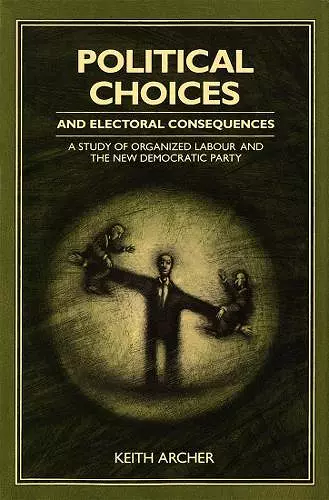Political Choices and Electoral Consequences
A Study of Organized Labour and the New Democratic Party
Format:Hardback
Publisher:McGill-Queen's University Press
Published:1st Aug '90
Currently unavailable, our supplier has not provided us a restock date

The most important link between labour and the NDP is the direct party affiliation of union locals. While this sort of affiliation had existed with the CCF, the Canadian Labour Congress showed a greater commitment to encouraging union locals to affiliate with the NDP. Although, as Archer discusses in both theoretical and empirical terms, individuals who belong to union locals formally linked to the NDP are more likely to vote for that party than are other people with similar socio-demographic characteristics, this has had little positive effect on the NDP's fortunes. Archer reveals that although, in principle, each union local may favour high rates of affiliation, it is often not in a local's self-interest to affiliate. Archer suggests that the main reason for such a disappointing record of affiliation is structural rather than ideological or cultural. He compares the Canadian situation to that in Britain, where the Labour Party rules governing affiliation have supported high rates of affiliation. The rules of the NDP, Archer goes on to show, are not significantly different from those that were developed between labour and the CCF. However, the CCF was not a labour party as such but rather an amalgam of farmers, labourers, and members of constituency associations. Labour's role has consequently remained that of a junior partner with the constituency groups. Under these circumstances, Archer argues, one would expect rates of affiliation to remain low.
"Archer has developed a compelling argument which will be of interest to those concerned with the fortunes of the NDP." Terry Morley, Department of Political Science, University of Victoria.
ISBN: 9780773507449
Dimensions: unknown
Weight: unknown
128 pages